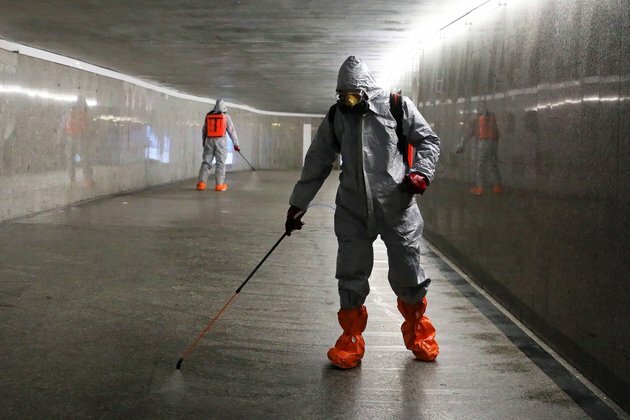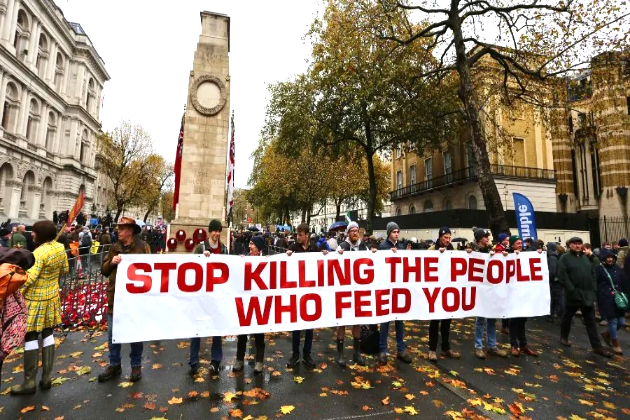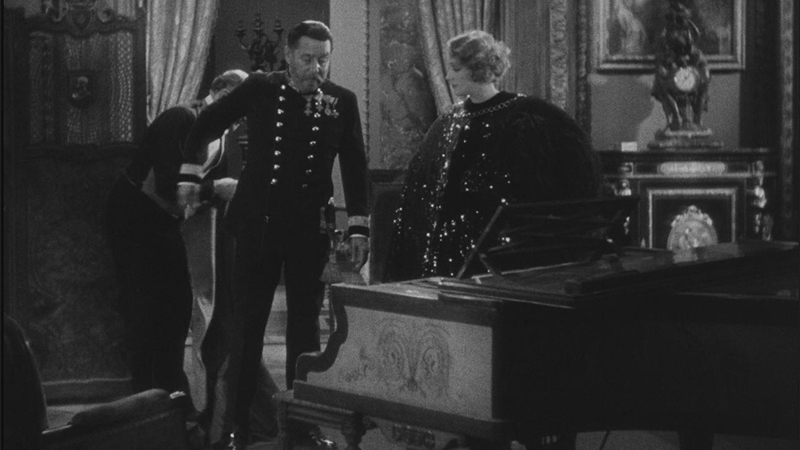Guide to the Classics: Albert Camus' The Plague
The Conversation
06 Apr 2020, 12:09 GMT+10

Some weeks ago, I got an email from a student who had returned to Northern Italy over Christmas to see family.
Unable to return to Australia, they were in lockdown. The hospitals were filling up fast, as COVID-19 began to spiral out of control. Sales of Albert Camus' 1947 novel The Plague (La Peste) were spiking. Everyone was buying it.
Rereading The Plague over these past weeks has been an uncanny experience. Its fictive chronicle of the measures taken in the city of Oran against a death-dealing disease that strikes in 1940 sometimes seemed to blur into the government announcements reshaping our lives.
Oran is a city like anywhere else, Camus' narrator tells us:
Like people anywhere else, the Oranians are completely unprepared when rats begin emerging from the sewers to die in droves in streets and laneways. Then, men, women and children start to fall ill with high fever, difficulties breathing and fatal buboes.
The people of Oran initially "disbelieved in pestilences", outside of the pages of history books. So, like many nations in 2020, they are slow to accept the enormity of what is occurring. As our narrator comments drily: "In this respect they were wrong, and their views obviously called for revision."
The numbers of afflicted rise. First slowly, then exponentially. By the time the plague-bearing spring gives way to a sweltering summer, over 100 deaths daily is the new normal.
Read more: Coronavirus weekly: as the world stays at home, where is the pandemic heading?
Emergency measures are rushed in. The city gates are shut, and martial law declared. Oran's commercial harbour is closed to sea traffic. Sporting competitions cease. Beach bathing is prohibited.
Soon, food shortages emerge (toilet paper, thankfully, is not mentioned). Some Oranians turn plague-profiteers, preying on the desperation of their fellows. Rationing is brought in for basic necessities, including petrol.
Meanwhile, anyone showing symptoms of the disease is isolated. Houses, then entire suburbs, are locked down. The hospitals become overwhelmed. Schools and public buildings are converted into makeshift plague hospitals.
Our key protagonists, Dr Rieux and his friends Tarrou, Grand and Rambert, set up teams of voluntary workers to administer serums and ensure the sick are quickly diagnosed and hospitalised, often amongst harrowing scenes.
In these circumstances, fear and suspicion descend "dewlike, from the greyly shining sky" on the population. Everyone realises that anyone - even those they love - could be a carrier.
Come to think of it, so could each person themselves.
The failure of the governors to consistently impose "social distancing" is shown up spectacularly in the novel's most picturesque scene. The lead actor in a rendition of Gluck's Orpheus and Eurydice collapses onstage, "his arms and legs splayed out under his antique robe".
Terrified patrons flee the darkened underworld of the opera house, "wedged together in the bottlenecks, and pouring out into the street in a confused mass, with shrill cries of dismay".
Arguably the most telling passages in The Plague today are Camus' beautifully crafted meditative observations of the social and psychological effects of the epidemic on the townspeople.
Epidemics make exiles of people in their own countries, our narrator stresses. Separation, isolation, loneliness, boredom and repetition become the shared fate of all.
In Oran, as in Australia, places of worship go empty. Funerals are banned for fear of contagion. The living can no longer even farewell the many dead.
Camus' narrator pays especial attention to the damages visited by the plague upon separated lovers. Outsiders like the journalist Rambert who, by chance, are marooned inside Oran when the gates shut are "in the general exile [...] the most exiled".
Today's world knows many such "travellers caught by the plague and forced to stay where they were, [...] cut off both from the person(s) with whom they wanted to be and from their homes as well".
Multiple allegories
Camus' prescient account of life under conditions of an epidemic works on different levels. The Plague is a transparent allegory of the Nazi occupation of France beginning in spring 1940. The sanitary teams reflect Camus' experiences in, and admiration for, the resistance against the "brown plague" of fascism.
Camus' title also evokes the ways the Nazis characterised those they targeted for extermination as a pestilence. The shadow of the then-still-recent Holocaust darkens The Plague's pages.
When death rates become so great that individual burials are no longer possible - as in scenes we are already seeing - the Oranaise dig collective graves into which:
When this measure fails to keep up with the weight of these "consignments", as with the genocidal actions of the Einzatsgruppen, "the old crematorium east of the town" is repurposed. Closed streetcars filled with the dead are soon rattling along the old coastal tramline:
Camus' plague is also a metaphor for the force of what Dr Rieux calls "abstraction" in our lives: all those impersonal rules and processes which can make human beings statistics to be treated by governments with all the inhumanity characterising epidemics.
For this reason, the enigmatic character Tarrou identifies the plague with people's propensity to rationalise killing others for philosophical, religious or ideological causes. It is with this sense of plague in mind that the final words of the novel warn:
Ordinary hope
There is nevertheless truth in the description of Camus' masterwork as a "sermon of hope". In the end, the plague dissipates as unaccountably as it had begun. Quarantine is lifted. Oran's gates are reopened. Families and lovers reunite. The chronicle closes amid scenes of festival and jubilation.
Camus' narrator concludes that confronting the plague has taught him that, for all of the horrors he has witnessed, "there are more things to admire in men than to despise".
Unlike some philosophers, Camus became increasingly sceptical about glorious ideals of superhumanity, heroism or sainthood. It is the capacity of ordinary people to do extraordinary things that The Plague lauds. "There's one thing I must tell you," Dr Rieux at one point specifies:
It is such ordinary virtue, people each doing what they can to serve and look after each other, that Camus' novel suggests alone preserves peoples from the worst ravages of epidemics, whether visited upon them by natural causes or tyrannical governments.
It is therefore worth underlining that the unheroic heroes of Camus' novel are people we call healthcare workers. Men and women, in many cases volunteers, who despite great risks step up, simply because "plague is here and we've got to make a stand".
It is also to these people's examples, The Plague suggests, that we should look when we consider what kind of world we want to rebuild after the gates of our cities are again thrown open and COVID-19 has become a troubled memory.
Author: Matthew Sharpe - Associate Professor in Philosophy, Deakin University 
 Share
Share
 Tweet
Tweet
 Share
Share
 Flip
Flip
 Email
Email
Watch latest videos
Subscribe and Follow
Get a daily dose of Dublin News news through our daily email, its complimentary and keeps you fully up to date with world and business news as well.
News RELEASES
Publish news of your business, community or sports group, personnel appointments, major event and more by submitting a news release to Dublin News.
More InformationBusiness
SectionBuilder discounts drive sales spike, but housing outlook wary
WASHINGTON, D.C.: New single-family home sales in the U.S. rose sharply in April to their highest level in over three years as builders...
CEO says health push weakened Nestle, vows return to F&B roots
VEVEY, Switzerland: Nestle is realigning its focus on its core food and beverage operations after expanding into areas like health...
Ford sues California law firms over alleged Lemon Law fee fraud
DEARBORN, Michigan: Ford Motor Company has filed a lawsuit against several California lawyers and law firms, accusing them of cheating...
US drug launch prices double in four years, Reuters finds
BRUSSELS, Belgium: U.S. drugmakers are charging significantly more for new treatments, particularly those targeting rare diseases,...
Allegations of secret nursing home deals shake UnitedHealth
MINNETONKA, Minnesota: UnitedHealth shares took a sharp hit this week, after a report by the UK's Guardian alleged the healthcare giant...
Trump-backed $1.5 billion golf project breaks ground near Hanoi
HUNG YEN, Vietnam: A new US$1.5 billion luxury golf and residential project backed by the Trump Organization officially broke ground...
Europe
SectionEU probes Visa, Mastercard fees amid antitrust scrutiny
BRUSSELS, Belgium: European Union antitrust regulators are examining fees imposed by payment giants Visa and Mastercard, Bloomberg...
Hundreds of children may be recalled after Dublin hip surgery audit
DUBLIN, Ireland: Nearly 500 children who had hip surgery at two Dublin hospitals between 2021 and 2023 may need to be recalled for...
US drug launch prices double in four years, Reuters finds
BRUSSELS, Belgium: U.S. drugmakers are charging significantly more for new treatments, particularly those targeting rare diseases,...
Trump re-ignites trade war, targets Europe in extraordinary attack
WASHINGTON, DC - U.S. President Donald Trump re-ignited his trade war on Friday with an extraordinary attack on the European Union...
Ireland urged to boost tech sector amid job decline
DUBLIN, Ireland: The number of people employed in social media companies in Ireland has dropped by 11 percent since 2022, according...
Farmers protest EU funding reforms in Dublin
DUBLIN, Ireland: Farmers and co-op leaders gathered outside the European Commission offices in Dublin this week, voicing opposition...












